Wisdom is best defined as a skill for living. It is a skill to understand the emotions you are feeling and then responding to those feelings so that you get a positive outcome for yourself. It also involves understanding the feelings of others. It is the ability to understand complicated situations and to make a good decision based on the most likely outcome. The person who is wise knows they cannot control events outside of themselves, but they have the skill to make the best decision available given all the elements of any situation. Wisdom is a skill which can be learned and practiced.
Two Elements of Wisdom
There are two simple elements to obtaining wisdom. The first element is knowledge. Knowledge is simply information stored in our brain. As we grow older, we accumulate knowledge from parents, experience, and teachers. For example, a two-year-old child does not understand why they feel sick. But as we get older, we understand that from time to time
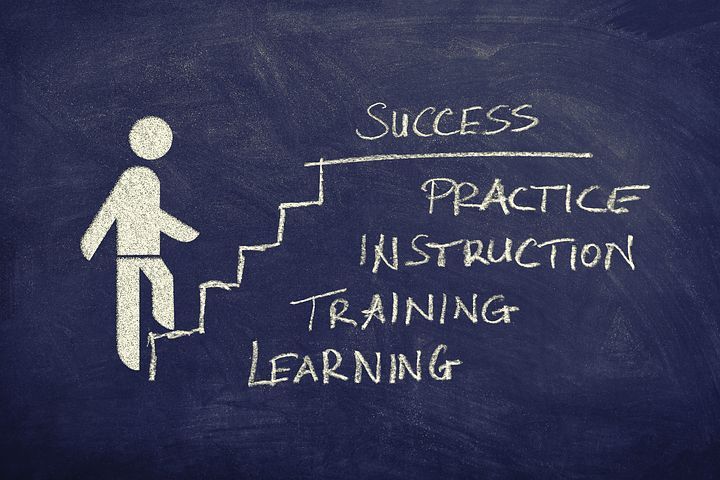 we catch the flu, and we just must endure it for a few days, knowing we’ll feel better after a while. The child doesn’t understand that crying doesn’t make fever go away. Wise adults understand that crying and whining don’t help.
we catch the flu, and we just must endure it for a few days, knowing we’ll feel better after a while. The child doesn’t understand that crying doesn’t make fever go away. Wise adults understand that crying and whining don’t help.
The second element of obtaining wisdom is applying the knowledge you have. People who are wise don’t just have knowledge, they put that knowledge to work to improve their lives. For example, a person can know they are drinking a lot of alcohol and that drinking is having a negative impact on their lives that they might even think, “I could be an alcoholic.” However, the wise person does something with that knowledge. They will talk to their doctor, spouse, or maybe they will attend an AA meeting. The fool just shrugs their shoulders and says, “Oh well.”
Books That Contribute Knowledge and Wisdom
I have gained a good deal of knowledge from the books which I have read. Over the years, reading has increased my knowledge and given me clues about what I should do, and how I should behave. Reading alone does not make a person wise, but it can contribute to wisdom by giving knowledge.
Last week a friend asked me for the top 40 books a person should read before they turn 40. I loved the question, and it has caused me to reflect on the books I have read which have contributed not just knowledge, but also wisdom.
My plan is to write for a couple of weeks on this topic and talk not just about the books which have helped me so much, but a short reflection on each book and how it has helped me. So, here we go.
The Best Old Books
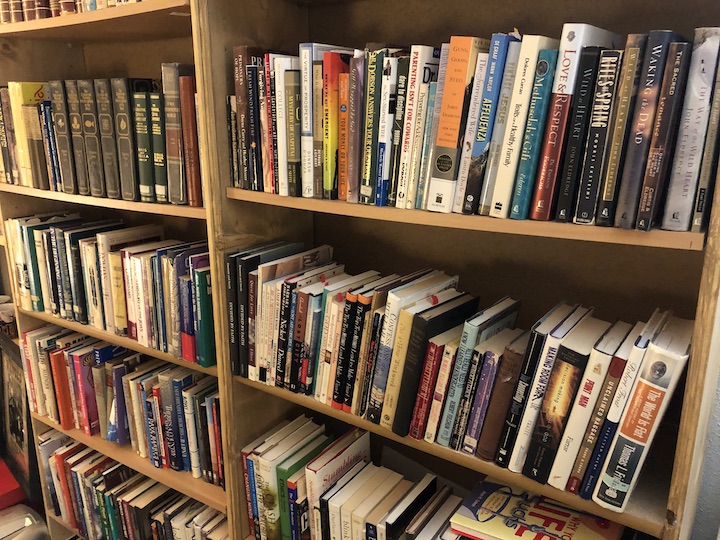 Old books are hard. They are hard because they are usually translated, and some things are lost in translation. Old books are also hard because the idioms used are often obscure and can be indistinguishable from what appears to be the straightforward meaning. In addition, old books were written in a culture significantly different from ours, and without some understanding of that culture, the meaning of the text can be misunderstood. As a result of these factors and others, the “obvious” meaning may not be the intended meaning of the author. That is why to really understand the full meaning of old books a great deal of study of the text and the history might be needed. However, because so much of our culture is based on old books it is good to be familiar with some of them. Below are my top four recommendations.
Old books are hard. They are hard because they are usually translated, and some things are lost in translation. Old books are also hard because the idioms used are often obscure and can be indistinguishable from what appears to be the straightforward meaning. In addition, old books were written in a culture significantly different from ours, and without some understanding of that culture, the meaning of the text can be misunderstood. As a result of these factors and others, the “obvious” meaning may not be the intended meaning of the author. That is why to really understand the full meaning of old books a great deal of study of the text and the history might be needed. However, because so much of our culture is based on old books it is good to be familiar with some of them. Below are my top four recommendations.
The Bible
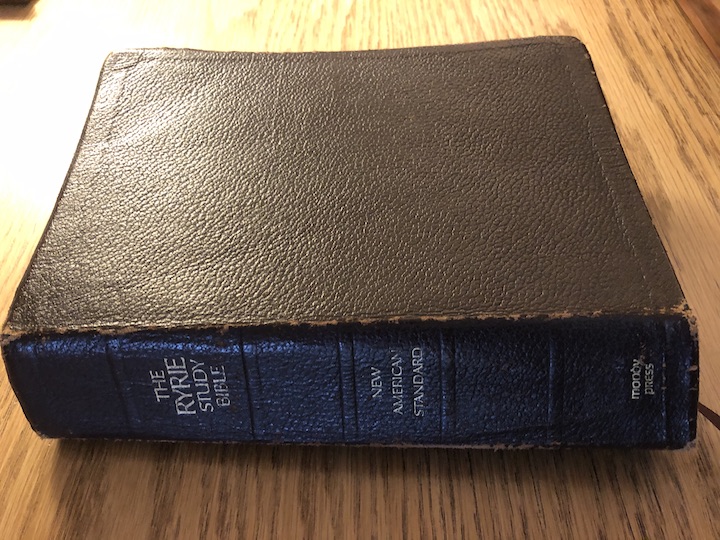
I think everyone should read the New Testament. Even if a reader is not a Christian or has no religious convictions this is a good read. Much of our western ideas of ethics is based on the life and teachings of Jesus and his disciples. This is so foundational to our culture that Debbie and I often host a Bible read-through in which we read the entire New Testament out loud all at once. It takes about 18 hours, we start at 6 a.m. and finish about midnight. It is more fun than you might think.
I think that it is also good to be familiar with the Old Testament. References to the stories of the Old Testament come up often in movies and in public discourse. So, it is good to know these stories and have some idea of the context in which they were written. However, much of the Old Testament has little or no meaning in our current context, it isn’t necessary to read the whole thing. I suggest reading a short history of ancient Israel to get a feel for the historical context in which the Old Testament was written, and then read selected portions. I think everyone should read Genesis, Exodus 1-20, parts of Numbers, 1 Samuel- 2 Kings, Ezra, Nehemiah, Esther, Job, Psalms, Proverbs, Ecclesiastes, Daniel, and Malachi. That would lay a good foundation of Biblical knowledge.
Plato’s Republic
This book is the high point of ancient Greek philosophy and is worth reading. Plato was the first to articulate the principles of definition, the law of contradiction, the fallacy of arguing in a circle, and the distinction between means and ends. The Republic includes Plato’s cave allegory and the allegory o
f the ship of fools. These particular principles of logic and allegories have been so helpful to me as I think through how I want to live.
Aristotle’s Nicomachean Ethics
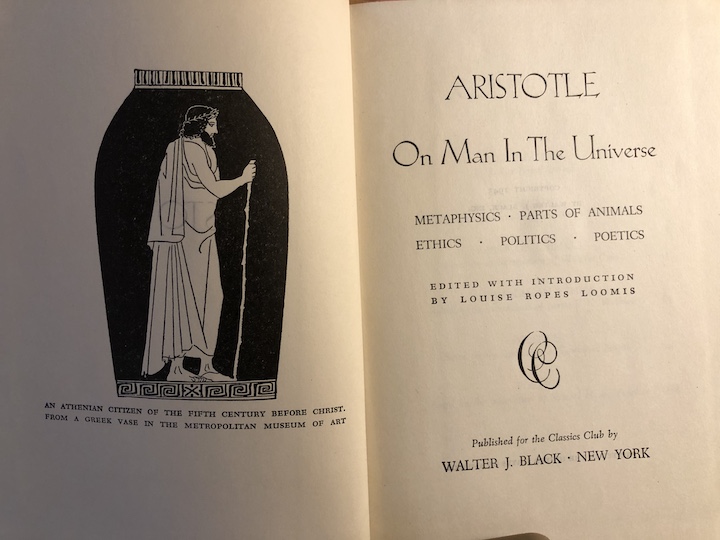
In Nicomachean Ethics, Aristotle wrestles with what it means to be a good person. He argues it is not enough to know what is good, but in order to be a good person he or she must do good. I remember teaching a section of this book when I was teaching at Cactus High School in Arizona. Several students complained this was not high school material but meant for college. However, as the students dug into a few pages with me, they found that Aristotle spoke c
learly to specific situations in their lives. One student even wrote me a year later to thank me for introducing her to Aristotle, because the principles we found there were helpful to her as she navigated her college career.
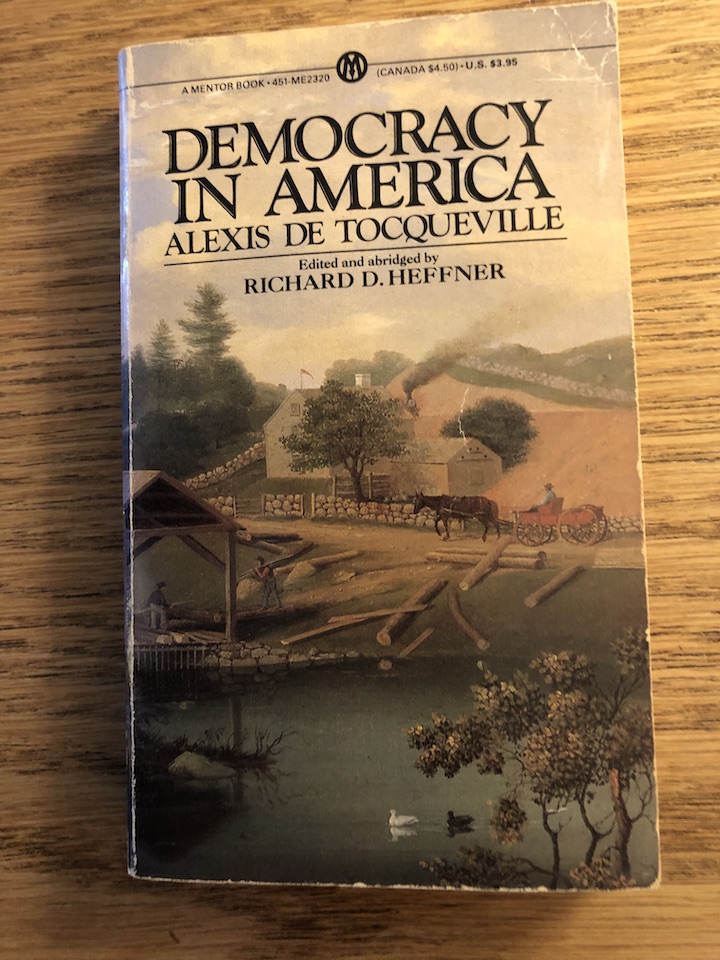
de Tocqueville’s Democracy in America
After the Bible and ancient Greek philosophers, I skip 1800 years to the mid-19th century to discuss another book which has impacted my thinking and my life. Democracy in America by Alexis de Tocqueville is a page turner. In 1831, de Tocqueville was sent to the US by the French government to study the US prison system. de Tocqueville spent nine months traveling throughout the US making observations not only about the prisons, but also about American society, including its religious, political, and economic systems. His observations about the character of the American people, and how they organized their lives, the role religion played in their lives, and how they lived out their values, is fascinating. The book gives real insight into how the US began and evolved very differently than Europe. Of particular relevance to our current political situation are his observations contrasting the northern part of the country with the southern.
This has been a fun exercise for me. It has been encouraging to look at all the books in my library and seriously consider which books have changed my life. Of course, I have read a lot of books in my library that haven’t had a big impact, but I am grateful for those books as well. It has been enjoyable to look at books which did not have a big impact on my life but by looking at them I remember a good chapter or a good story. There are some books in my library which I have no memory of reading, but not many. I am looking forward to writing about other books which have added to my knowledge base and helped me become a wiser person.